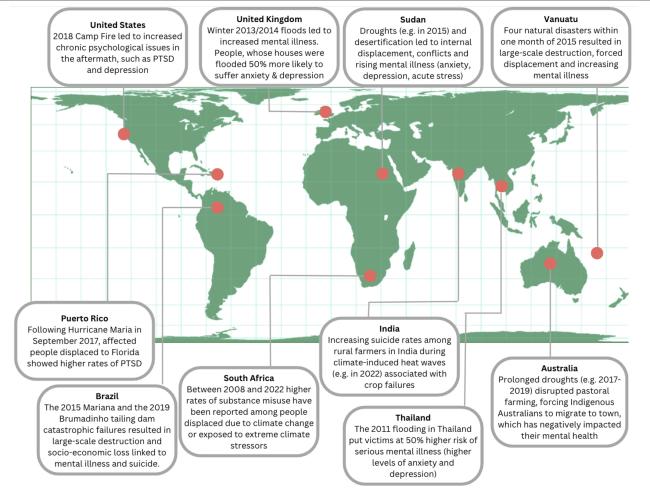Risks of social destabilization under climate crisis
2024-09-18The ongoing climate crisis is not only destabilizing the Earth System but is also now adversely impacting the societal functions. This is now manifesting in negative social tipping dynamics such as anomie, radicalization, polarization, displacement, conflict and financial destabilization, at a global level – new research by Avit Bhowmik finds.
The world is currently undergoing a turmoil. According to the 2024 Global Trends Report, 117.3 million people were forcibly displaced by 2023 with 68 million uprooted from their homes by conflict. Social trust is globally declining, while inflation and financial destabilization are putting social security and insurance at stake.
The worldwide social disruptions may be fueled by the ongoing climate crisis – according to a new research by Avit Bhowmik, Assistant Professor of Risk and Environmental Studies and colleagues, published in the journal Earth System Dynamics. The researchers applied a lens of “negative social tipping dynamics” to understand how the destabilized Earth System by the ongoing climate crisis can trigger disruption is several social functions and institution. They consolidated research about how these social disruptions can interact with each other to destabilize the social system, which may further destabilize the climate system.
The international group of researcher who also coauthored the Global Tipping Points Report, released at the COP28, gathered evidence of five particular types of social disruptions – anomie (breakdown of social trust), radicalization and polarization, forced displacement, conflict and financial destabilization – which may have been intensified by the Earth system destabilization by climate change and unfolded negative social tipping dynamics. For example, people can respond to climate change and other ecological threats by becoming more authoritarian and derogative against out-groups. A couple of recent right-wing terrorists have already self-identified as ecofascists, such as Brenton Tarrant, who killed 51 people during a terror attack on a mosque in Christchurch, New Zealand, in 2019. Political responses to climate extreme events such as droughts in Syria may have worsen the existing water scarcity and led to the civil unrest in 2011.
Strengthening of current societal institutions and polycentric governance mechanisms are called for avoiding the risks of climatically triggered social destabilization. The governance of both and negative tipping dynamics would be crucial to navigate this turbulent world. Research on societal risks would be vital for an enhanced understanding of the negative tipping dynamics.




